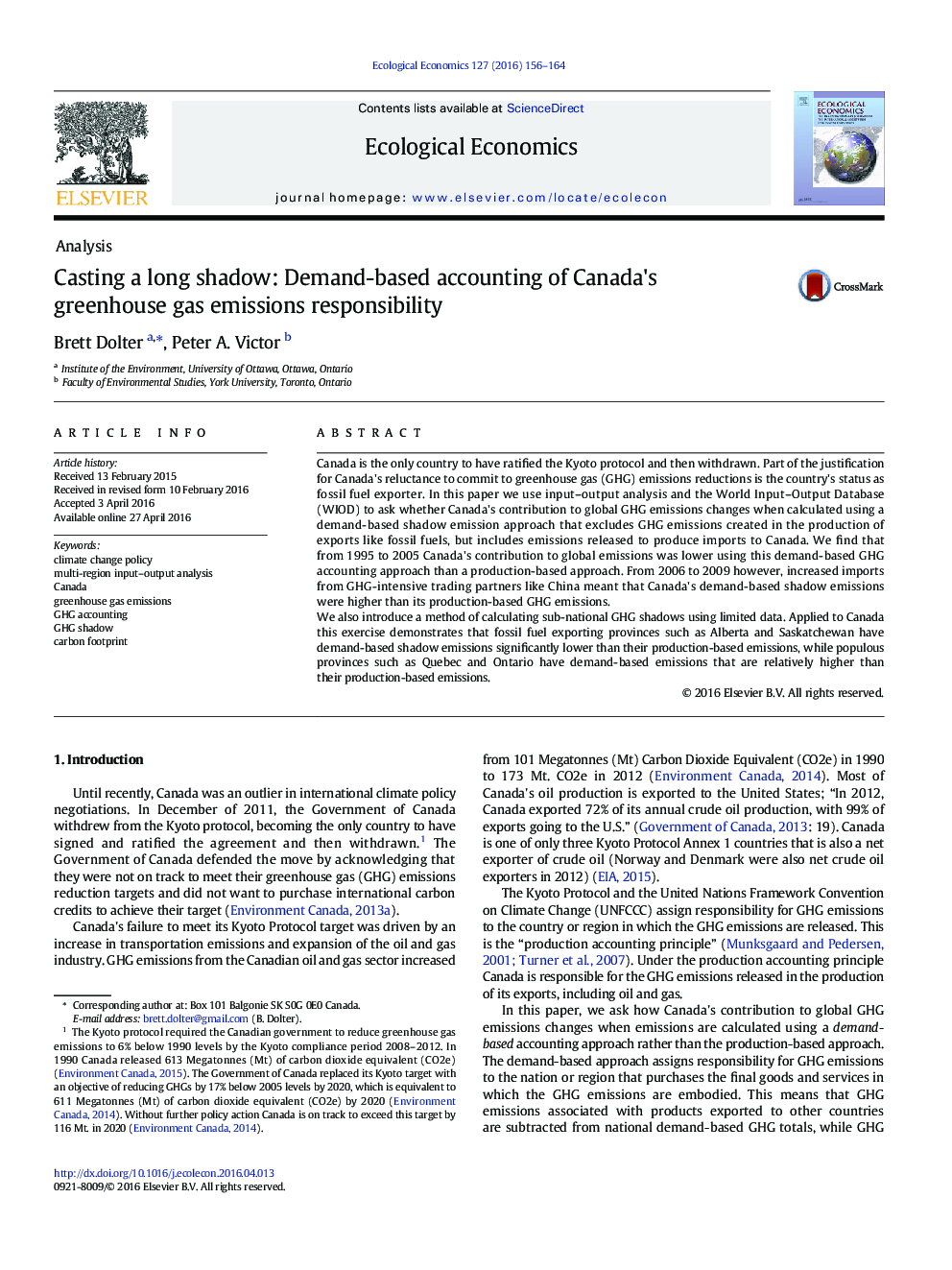| کد مقاله | کد نشریه | سال انتشار | مقاله انگلیسی | نسخه تمام متن |
|---|---|---|---|---|
| 5049117 | 1476352 | 2016 | 9 صفحه PDF | دانلود رایگان |
- Canada's demand based greenhouse gas emissions are estimated from 1995 to 2009
- Demand based emissions exceeded production based emissions from 2006 to 2009
- Fossil fuel exporting provinces in Canada are net exporters of embodied emissions
Canada is the only country to have ratified the Kyoto protocol and then withdrawn. Part of the justification for Canada's reluctance to commit to greenhouse gas (GHG) emissions reductions is the country's status as fossil fuel exporter. In this paper we use input-output analysis and the World Input-Output Database (WIOD) to ask whether Canada's contribution to global GHG emissions changes when calculated using a demand-based shadow emission approach that excludes GHG emissions created in the production of exports like fossil fuels, but includes emissions released to produce imports to Canada. We find that from 1995 to 2005 Canada's contribution to global emissions was lower using this demand-based GHG accounting approach than a production-based approach. From 2006 to 2009 however, increased imports from GHG-intensive trading partners like China meant that Canada's demand-based shadow emissions were higher than its production-based GHG emissions.We also introduce a method of calculating sub-national GHG shadows using limited data. Applied to Canada this exercise demonstrates that fossil fuel exporting provinces such as Alberta and Saskatchewan have demand-based shadow emissions significantly lower than their production-based emissions, while populous provinces such as Quebec and Ontario have demand-based emissions that are relatively higher than their production-based emissions.
Journal: Ecological Economics - Volume 127, July 2016, Pages 156-164
